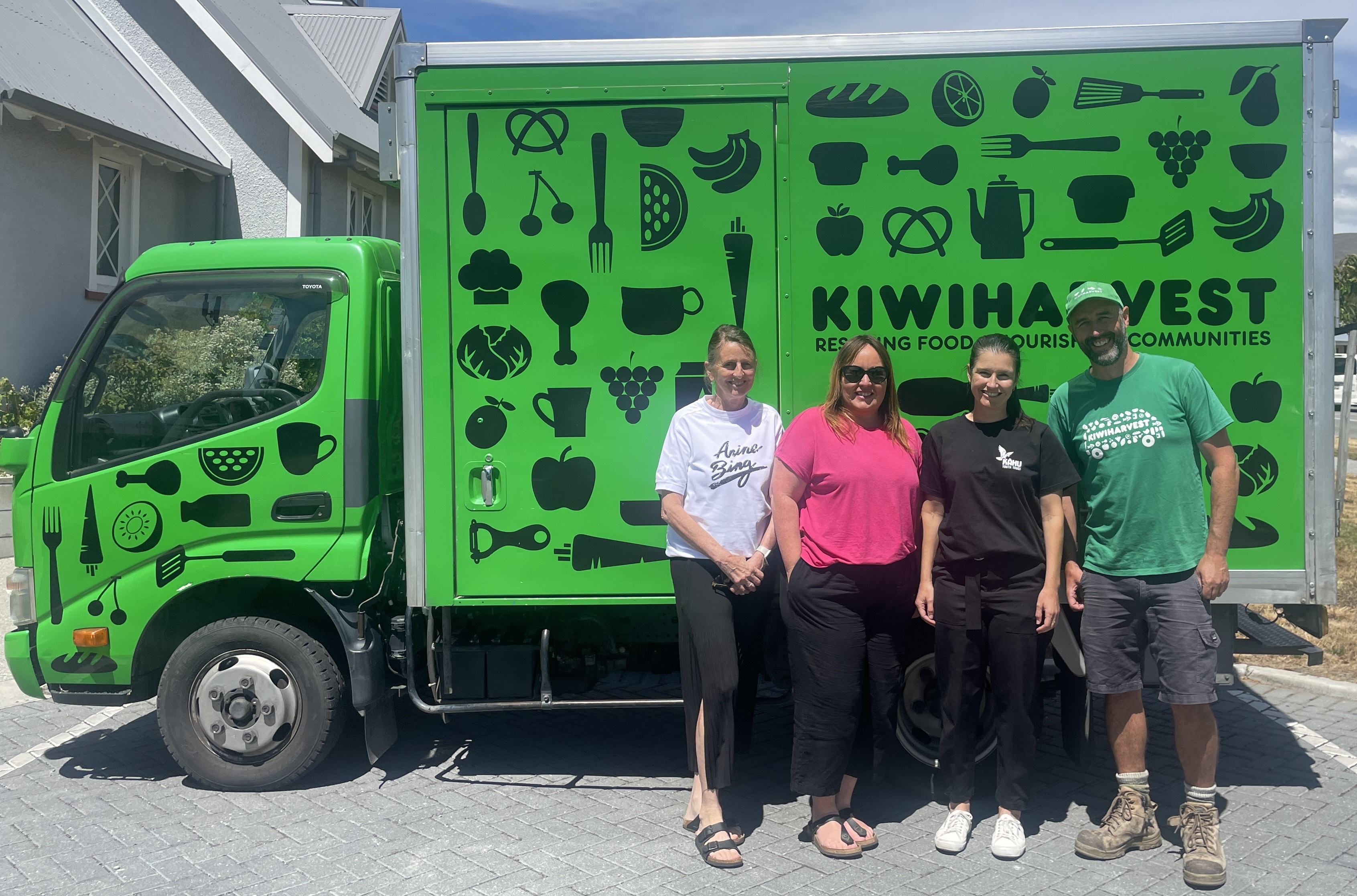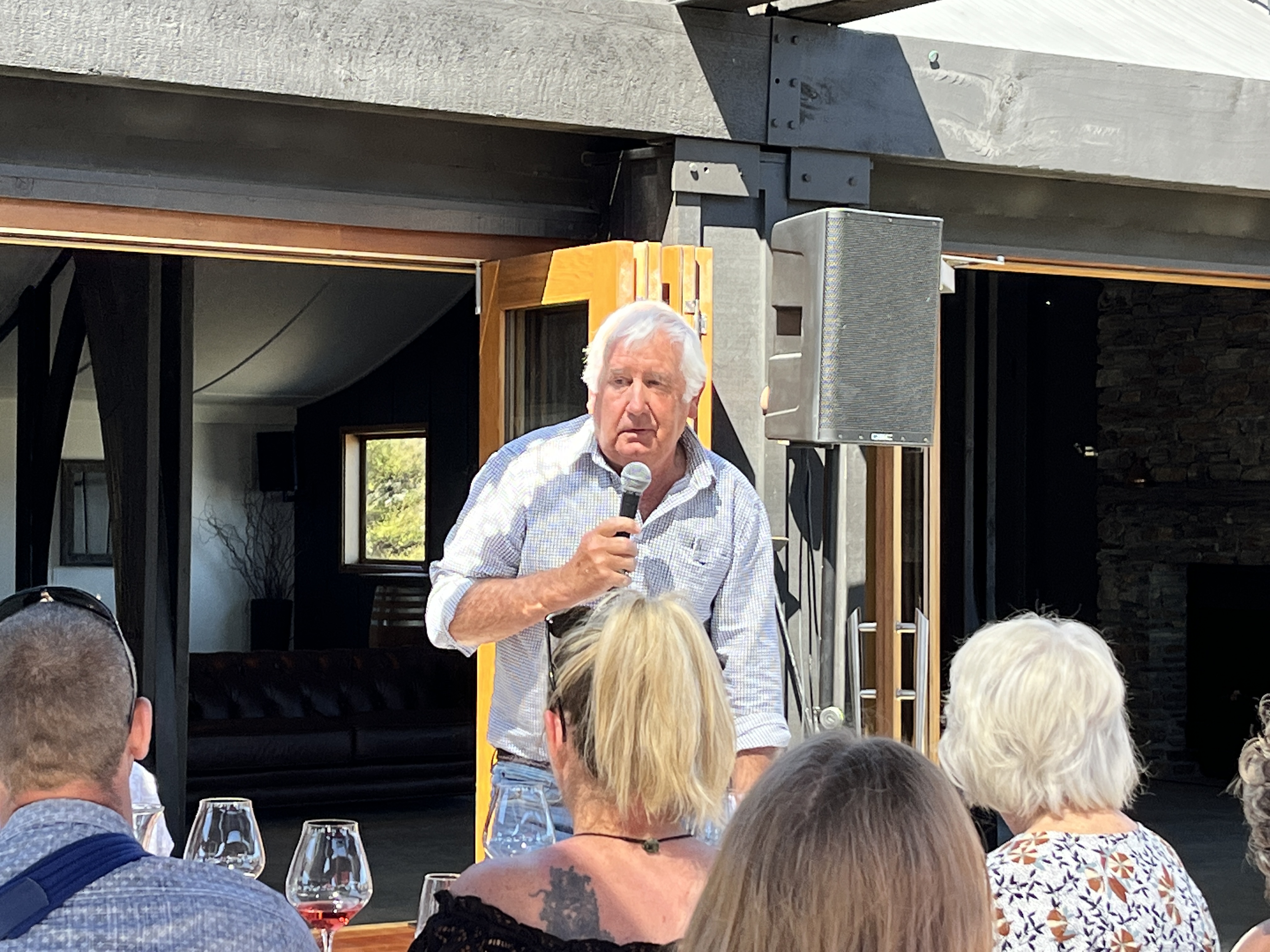Food rescue record for KiwiHarvest

21 October 2025, 4:00 PM
 KiwiHarvest Queenstown Lakes branch manager Gary Hough (right), pictured with representatives from Wānaka charities it supports.
KiwiHarvest Queenstown Lakes branch manager Gary Hough (right), pictured with representatives from Wānaka charities it supports.Food Rescue nonprofit organisation KiwiHarvest is helping more vulnerable families in this region by distributing a record amount of rescued food.
KiwiHarvest achieved a major milestone in 2025, rescuing over three million kilograms of surplus food nationwide and redirecting it to vulnerable communities throughout New Zealand.
The growth in rescued food has more than doubled (52 percent) in the past two years.
KiwiHarvest Queenstown and Central Lakes played a key role, distributing 187,169 kgs of rescued food in the financial year ending March 2025.
That’s the equivalent of 415,931 meals and a 31 percent increase on the same period the year before.
"This growth reflects the incredible dedication of our volunteers and the generosity of our local donors," KiwiHarvest CEO Angela Calver said.
"Every kilogram of food rescued helps ease pressure for families in Queenstown and the Central Lakes, and we’re proud to be making a tangible difference in the local community, as well as to the environment, with 561,507 kgs of carbon dioxide equivalent (CO2eq) prevented during the year by food not going to landfill.”
In the Upper Clutha the food is delivered to groups such as Community Link, Food for Love, and Kahu Youth Trust.
The rescued items included food and non-food items such as cleaning products, sanitary products, and nappies, distributed to help to ease pressure on household budgets.
While the milestone is a cause for celebration, it also highlights a deepening crisis, Angela said.
Food insecurity is rising in New Zealand, and demand for rescued food is outpacing the organisation’s ability to supply it.
“We’re entering a critical phase. KiwiHarvest is growing, which is positive but we’re approaching a tipping point,” Angela said.
“There’s more food available for rescue than ever before, but unless we secure more funding and infrastructure, we’ll be forced to turn away food donations. Our goal is to rescue four million kilograms nationwide this year, but right now, we simply don’t have the resources to get it all to where it’s needed most.”
This year, KiwiHarvest launched a new initiative uniting food rescue organisations and community groups nationwide to create a coordinated service for its national food donors.
Food insecurity in New Zealand is getting worse, even as global hunger rates improve. One in four children live in households where food runs out (Ministry of Health statistics report that 27 percent of children are now living with food insecurity, up from 21 percent last year).
PHOTO: Wānaka App






